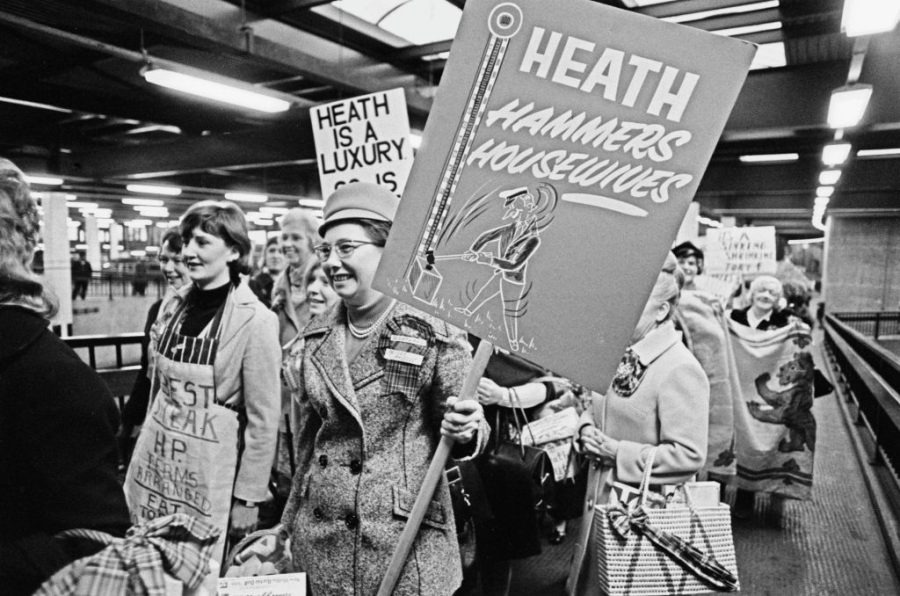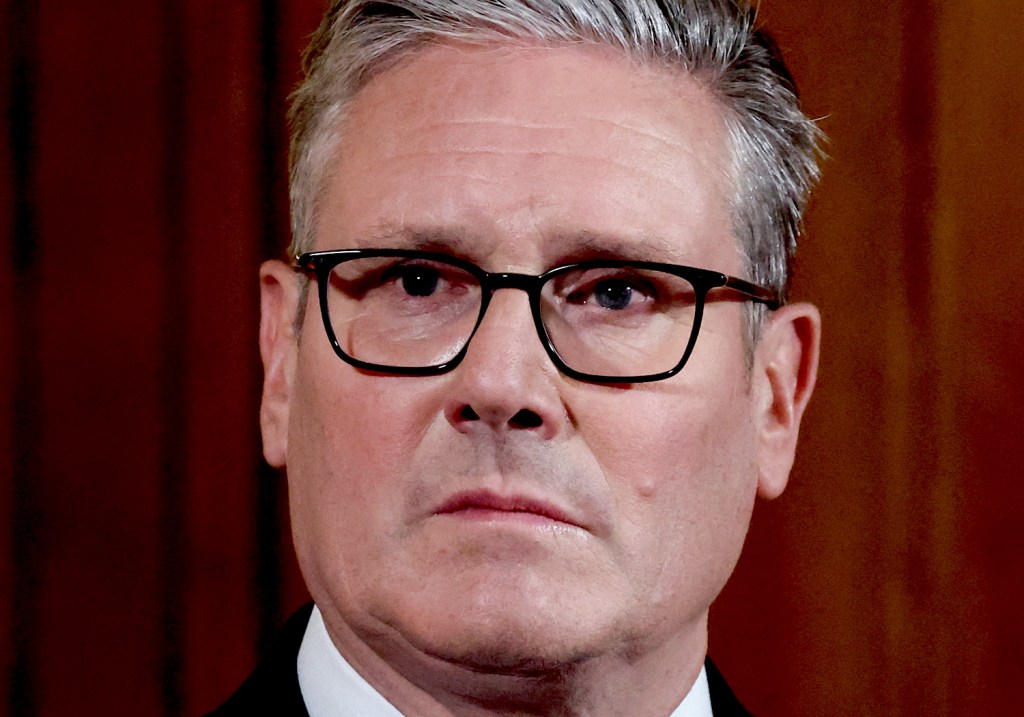Is Britain going back to the 1970s? Even under the Conservatives in 2022, the Financial Times was warning we were in danger of reliving that ‘relentlessly awful decade’. Since Starmer’s accession to power, the similarities have become only clearer.
Millionaire hotelier Rocco Forte drew the same comparison in the autumn, saying we’d ‘come full circle’ and that the new Labour government was ‘doing a lot based on socialism, but not a lot on common sense’. ‘They talk about growth, but everything they’re doing is anti-growth,’ he added. Broadsheet newspapers warn us that the return to ‘stagflation’ – that perilous mash-up of high inflation and stalling development – is taking us right back to the dismal era of Heath, Wilson and Callaghan. Dipping into accounts of the 1970s – Alwyn Turner’s Crisis, What Crisis? or Dominic Sandbrook’s masterly two-volume history, State of Emergency and Seasons in the Sun – you can see they have a point.
The sense of national decline, then as now, led to many dreaming of radical solutions
Of course, there are differences of degree. Under the 1974 Wilson government, the highest level of income tax stood at 83 per cent, while in 1975 inflation soared to a staggering 25 per cent, dwarfing the current rates of both. Such body-blows left the country reeling, crippled by industrial action and national debt, and made it widely known as ‘the sick man of Europe’.
‘Britain is a tragedy,’ US Secretary of State Henry Kissinger reported to President Ford at the time. ‘It has sunk to begging, borrowing, stealing… That Britain has become such a scrounger is a disgrace.’ The magazine International Insider declared it was ‘fast turning into a borrower to be classed alongside an undeveloped country’. In the Margaret Drabble novel The Ice Age, one character laments the way other nations had ‘turned against England…. Powerless, teased, angry, impotent, the old country muttered and protested and let itself be mocked’.
Meanwhile, professional diarist James Lees-Milne railed that the Labour government did ‘nothing to save the economy, nothing to boost industry. Everything… is intended to placate the trade unions’. In a letter to the press, one woman from Blackburn complained it was the ‘middle people’ who had been hardest hit: ‘If you have any money left to build up the firm, it’s taken away’. It felt, she said, as if it had been ‘diabolically arranged’. Conservative leader Margaret Thatcher put it more succinctly: the Labour government had paid ‘far too little attention… to wealth creation and far too much to wealth distribution’. Plus ça change…
It wasn’t just the government or striking unions who seemed to attack the country from within. When, in 1972, the BBC screened a 13-part series about the British Empire, the one-sided picture caused uproar. Why, asked Charles Gibbs-Smith, head of PR at the V&A, had the BBC only emphasised the ‘so-called past wickedness of British imperialism?’ Another added: ‘’I cannot conceive what the purpose behind this series can be, unless it is to make us ashamed, and our children,’ Gibbs-Smith agreed: ‘Have certain quarters in the BBC decided the time has come, not only to chip away at the nation’s public image, but to erode our patriotism, particularly amongst the young?’
Britons, Sandbrook tells us, took refuge in the past, membership of the National Trust soaring to new heights. It’s doubtful whether today, with its ongoing determination to confront visitors to their properties with the darker moments of Britain’s imperial past, that same organization can provide such solace to anyone.
But there were other, more violent threats to national security to worry about. ‘Acts of casual terrorism,’ said a 1974 Times leader – which might have been written last week – had become ‘part of the texture of our lives… There is no pause in the violence… It is a sign of a civilization in regression, turning back from achievement to neobarbarism.’
Few recall just how prolific the IRA terrorist campaign against mainland Britain was at its height. In 1974, there were 11 bombings alone, from the M62 coach bombing in February (killing nine soldiers), to attacks on pubs, barracks, shops, clubs, the Houses of Parliament and the Tower of London, killing about forty people and injuring countless more. In 1975, the Hilton Hotel was bombed and so was Green Park station, the year ending with the assassination of Guinness Book of Records editor Ross McWhirter at his London home. Anti-Irish feeling in Britain seemed to run off the scale. ‘I loathe and detest the miserable bastards,’ wrote a Tory politician in the Evening Standard. ‘May the Irish, all of them, rot in hell.’
Nor was it just Ireland the British were exercised about. Immigration, then as now, was a hot issue, as the 1972 arrival of 40,000 Ugandan Asians, thrown out of their homes by newly installed dictator Idi Amin, split the UK down the middle. Some called for the Ugandans’ British passports to be honoured, others raised fears of non-integration and pressure on public services. Contemplating the sudden influx, too, of rich Gulf Arabs into Central London, Anthony Burgess in his novella 1985 imagined a future capital – Sandbrook tells us – ‘where the London skies resonate with the call to prayer’, and ‘half-moon banners flutter from street corners.’
Though many in the 70s felt average yearly immigration figures (about 72,000) were unabsorbable, politicians, then as now, flinched from tackling the topic. ‘Fear of being attacked by the press as a “racialist”,’ writes Sandbrook, ‘was much greater than the appeal of pandering to working-class sentiments.’
When Thatcher in 1978 said on World in Action that there was a danger of British people feeling ‘swamped’ by new arrivals, condemnation was swift and brutal. Liberal leader David Steel denounced the remark as ‘appallingly irresponsible’ and ‘really quite wicked,’ while Healey accused her of ‘cold-blooded calculation in stirring up the muddy waters of racial prejudice’. But what, you can’t help wondering, would any of these politicians make of current rates of immigration – at 728,000 net in 2024, just over ten times more?
The sense of national decline, then as now, led to many dreaming of radical solutions. The recent finding that over half of Gen Z would be happy to see Britain ruled by a dictator is, like many other things, a case of déjà vu. In Arthur Wise’s 1970 novel Who Killed Enoch Powell? (which imagines the assassination of the right-wing firebrand), the home secretary muses what Britain needs is ‘a strong man – the iron fist’.
Actor Alec Guinness, who’d just played Adolf Hitler onscreen, saw traits of Weimar Germany in the modern UK, saying that ‘the situation in England strikes every month a decadent, yes, decadent note… People say, why not get someone else to sort it all out for them… a strong man’. In October 1975, David Bowie told the NME that Britain needed ‘an extreme right front [to] come up and sweep everything off its feet and tidy everything up’, adding to the press a few months later that Britain ‘could benefit from a fascist leader’. Even a literary penfriend of the comedian Joyce Grenfell – that model of middle of the road English staunchness – wrote that, following a power cut, she had wondered ‘whether democracy is quite the answer!’
Various candidates for ‘strong man’ were floated – the crusty General Sir Walter Walker, ex-Commander-in-Chief of Allied Forces Northern Europe or, in one surreal moment, Lord Louis Mountbatten, uncle to the late Prince Philip. Enoch Powell, sacked by Heath for his ‘rivers of blood’ speech, remained the most popular politician in the country – ‘Man of the Year’ in a BBC survey two years running – with many pining for his return. Powell, said the Guardian’s Peter Jenkins, was oddly tuned into people’s fears that ‘the politicians are conspiring against the people, that the country is being led by men who had no idea about what interests or frightens the ordinary people in the backstreets of Wolverhampton’. But it was perhaps appropriate, in an era of Women’s Lib, that it should be a woman, and a strong one at that, who would come to power at the end of this fraught decade to sweep the entire panoply away.
If our own times seem to mirror the 1970s, we should perhaps count our blessings. ‘One of the more frequent recurring fallacies,’ wrote the late Christopher Booker, ‘is people’s belief that their own age is without precedent, that some new order is coming to birth in which all the general assumptions previously made about human nature are becoming outmoded.’ You can only hope, looking round at a rapidly changing world in 2025, that Booker got it right.







Comments